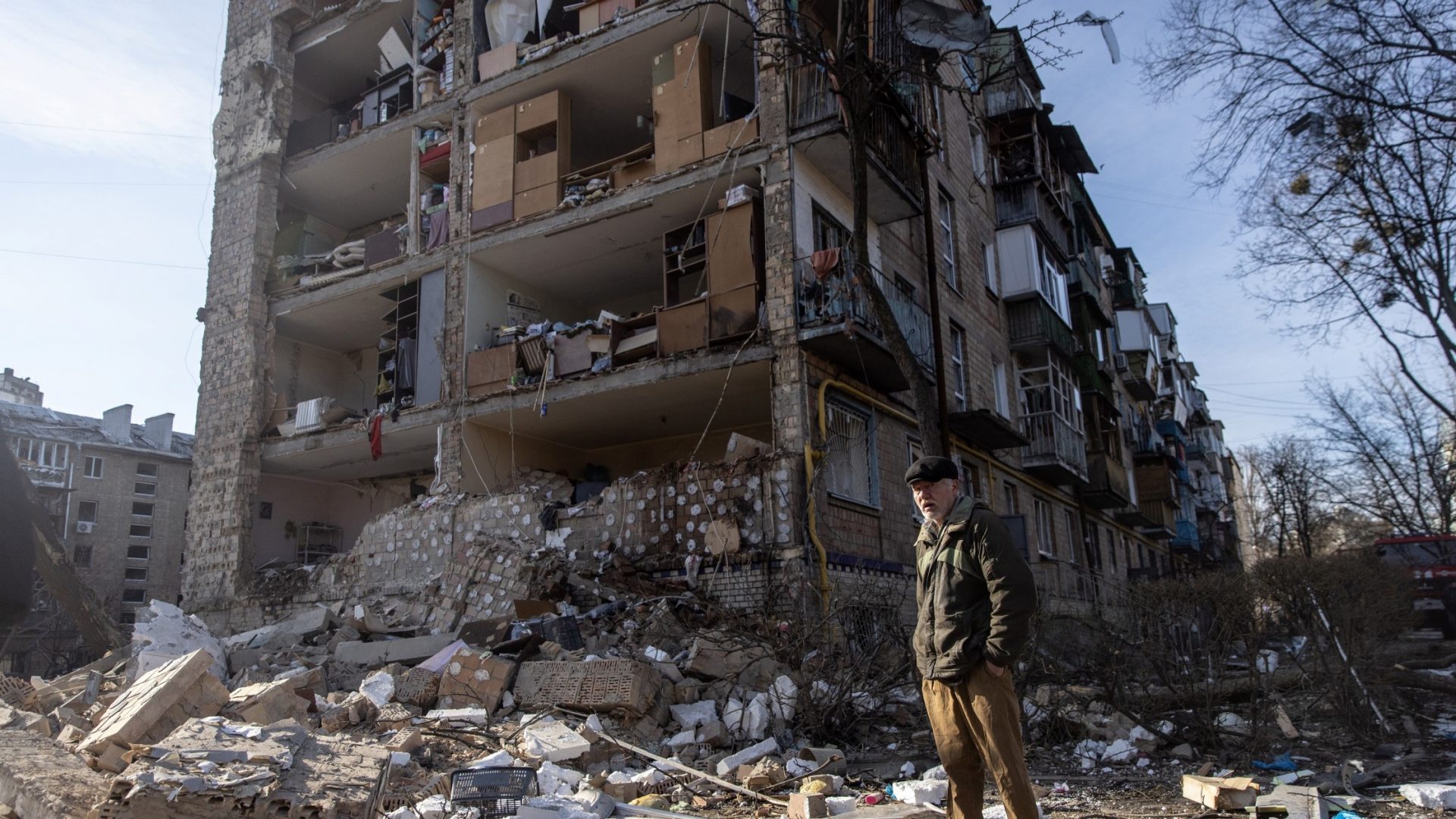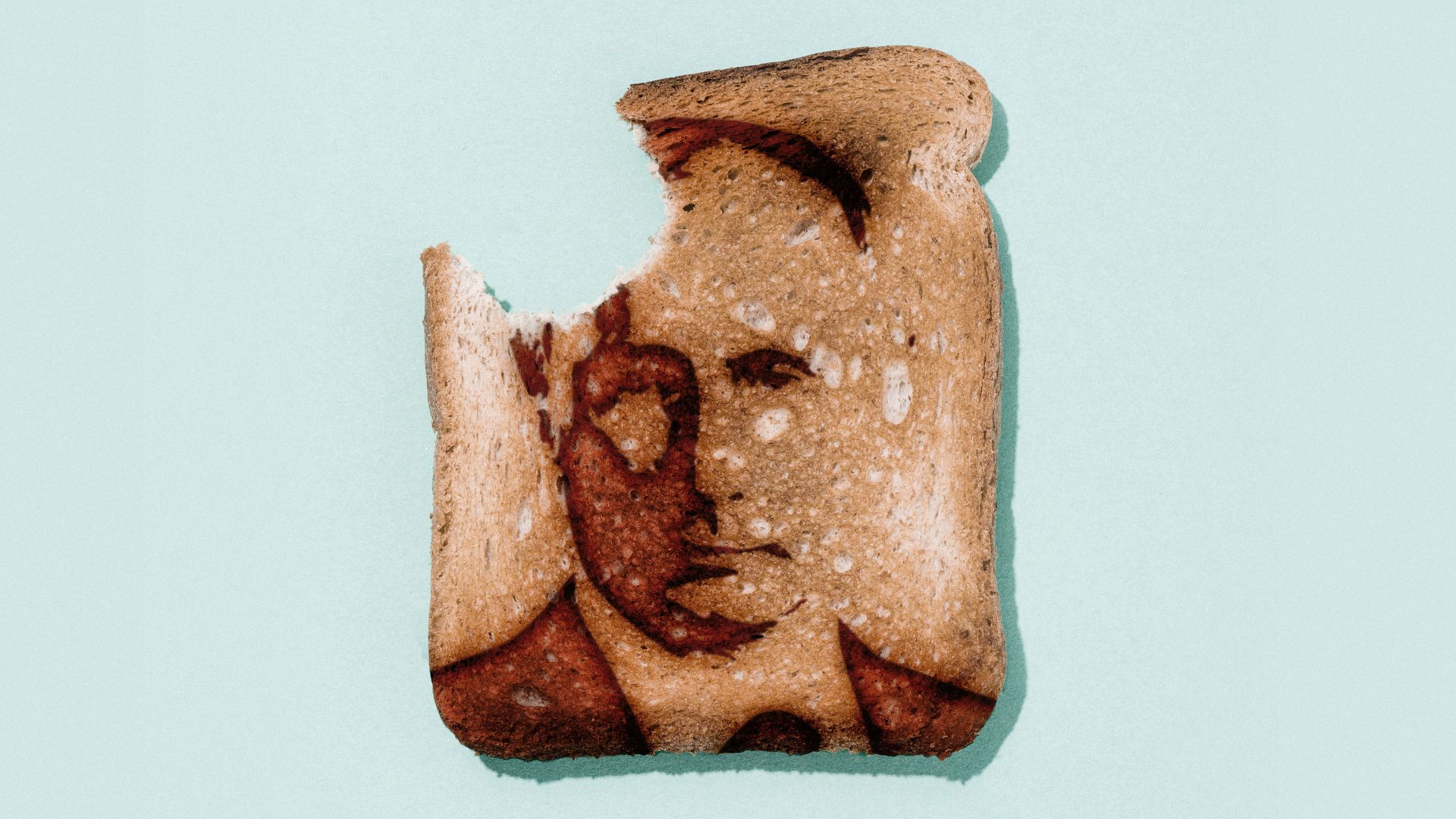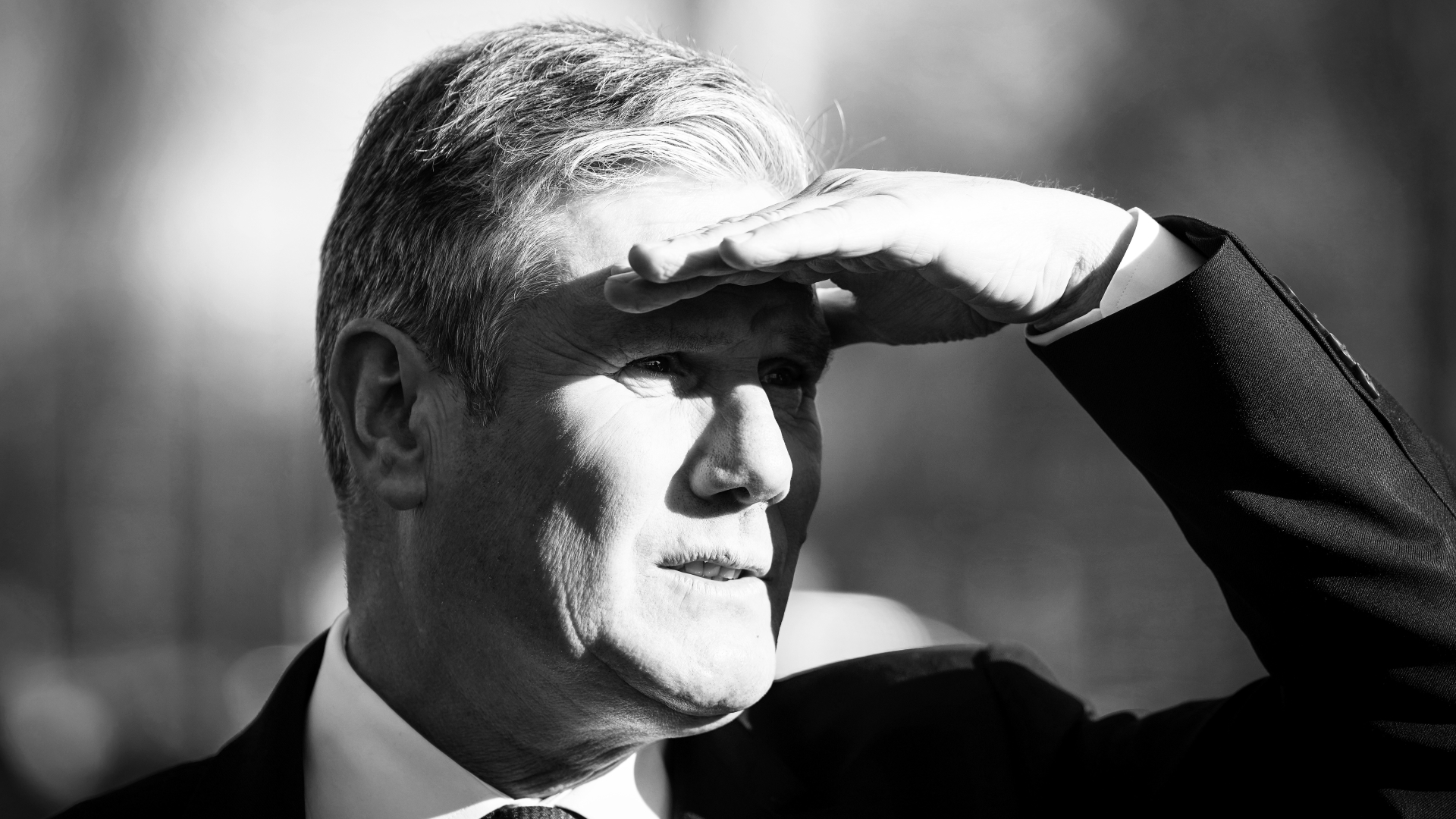So much of the war in Ukraine is shrouded in secrecy; so much is based on hope. When the history is written, we will realise how little we knew at the time. Why did Vladimir Putin decide to invade? How did Ukraine manage to resist so determinedly from day one? Why did the Russian army fail so badly? Not to mention the role of the Wagner Group, the drone attacks and assassination attempts, the destruction of the Nord Stream pipeline. And the most important and perennial of the known unknowns, how long would the man in the Kremlin survive?
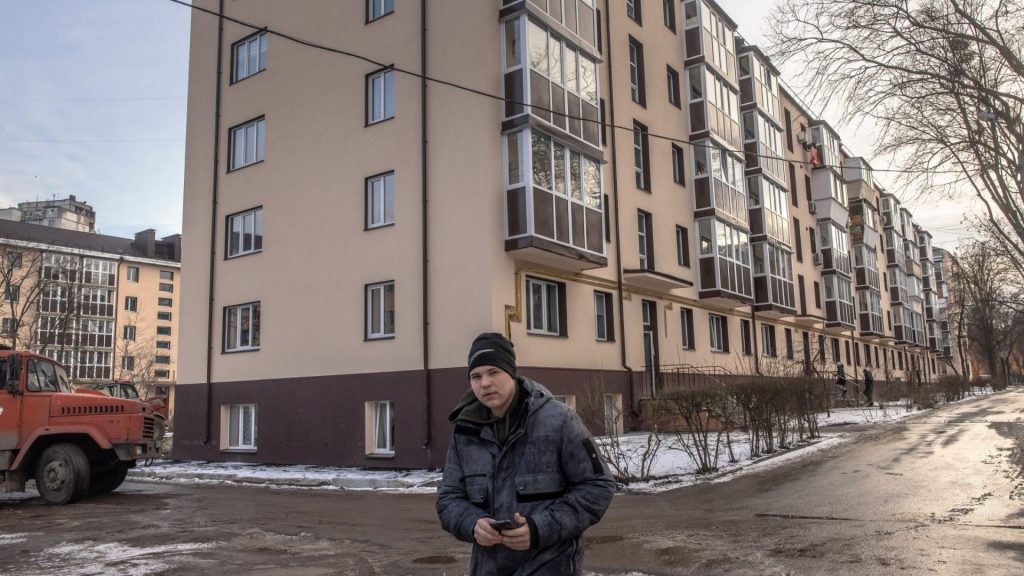
of regular air strikes. Photo: Roman Pilipey/Getty
Yet, seen from the vantage point of spring 2023, one point does seem clearer. It is the answer to the question: how long has Ukraine got to win? The window of opportunity for victory is about to open. It will last approximately six months. The long-awaited counter-offensive will continue until the start of the winter snow in October-November. At that point, lines will be drawn that could last for a long time. Think the DMZ in Korea, separating the communist North from the South. Think the buffer zone that delineates Cyprus, keeping the Turkish invaders apart from the Greeks. Think the Line of Control in Kashmir. These and other conflicts are frozen in time. There is no peace, but there is an accommodation of sorts. Will that be the fate of Ukraine for years to come?
Two factors will determine the outcome: the terrible battles about to be fought to the east and south of Ukraine are impossible to predict; the geo-political machinations of outside forces are far easier.
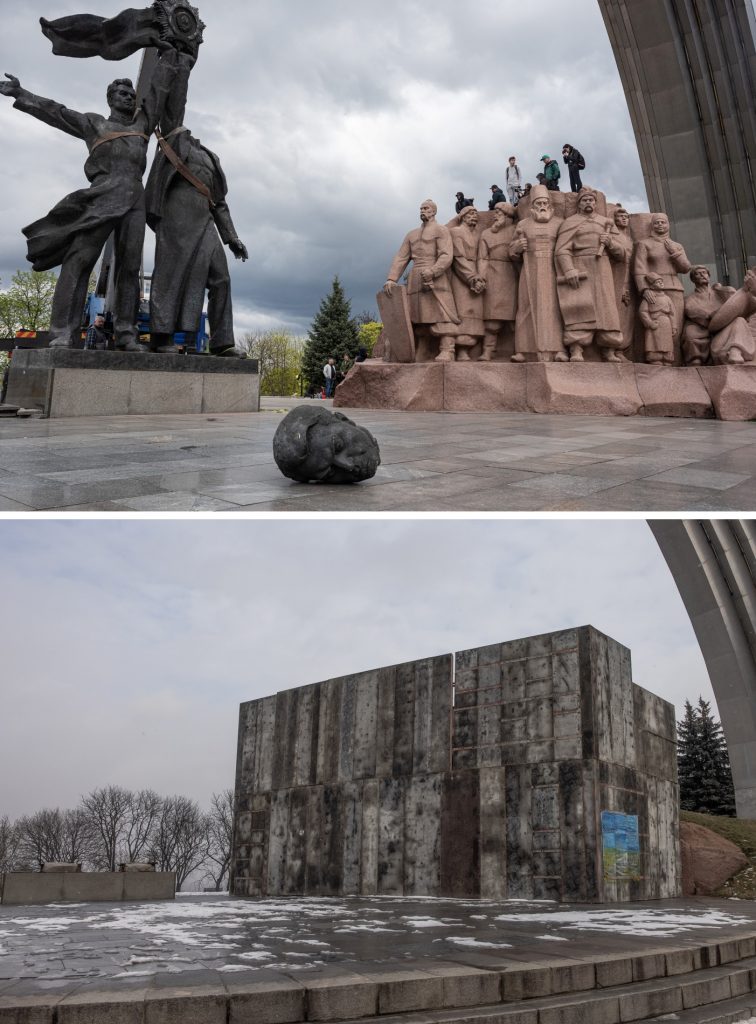
Kyiv during its demolition in April 2022.
Below: an empty space where the monument once stood, under the renamed Arch of Freedom of the Ukrainian People. Photos: Alexey Furman; Roman Pilipey/Getty
European solidarity has been far more sustained than anyone would have predicted. Nato, famously declared brain dead, is now seen as the guarantor of peace and stability. The European Union (not that the Brits would admit it) has done a grand job in marshalling divergent political forces. Even the far-right government in Italy fell into line. President Biden has survived brickbats to provide solid leadership. The lights did not go out over Europe over the winter.
But the concern both in Kyiv and in western European capitals is that support, while not disappearing, will erode as we enter 2024. The focus in the United States will be on the presidential elections. Biden, now he has committed to standing for a second term despite his age, will come under considerable pressure to focus more on the America First agenda. In any case, the number one US foreign policy priority is China, not Russia. Even if Donald Trump does not prevail, the very possibility of his return will have an increasingly destabilising effect on both Republicans and Democrats. And if he does return to the White House, all bets will be off.
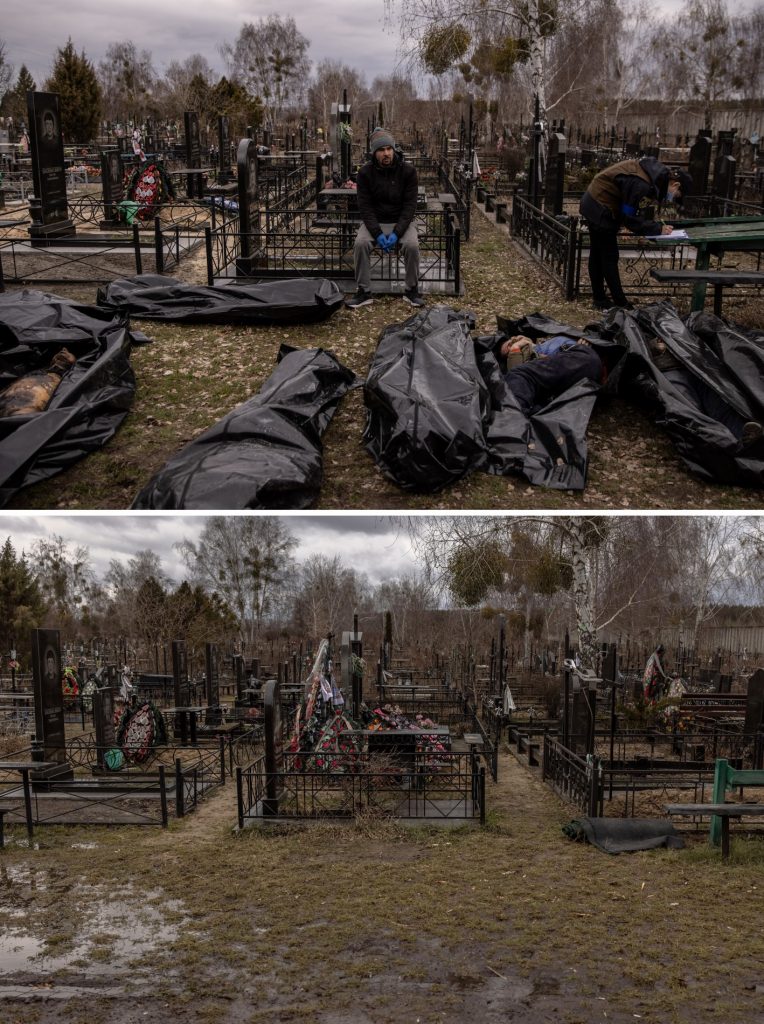
Below: the same cemetery in February 2023. Photos: Chris McGrath; Roman Pilipey/Getty
Even though Washington, Paris and Berlin adamantly deny it, pressure will grow on Zelensky to find a way out of the morass. President Macron, manipulated to extraordinary effect by Xi Jinping, is canvassing Beijing to play a role in peace efforts. The Germans will follow in behind the Americans. The Brits and the Poles will talk tough, but on their own will not be able to change the prevailing diplomatic mood.
Which is why the location of next winter’s frontline matters so much. Zelensky has pledged that the only peace he will accept will be one that follows Ukraine’s victory. That victory is defined as taking back all the land seized by Russia not just since February 2022 but also in 2014, including Crimea. Western governments formally back that position.
That is an absolute position, one that is clear and moral. It is also militarily not out of the question. After all, Ukraine has already reclaimed just over half the land Russia has captured since last year’s invasion. The Kremlin now occupies slightly under 20% of Ukrainian total territory; even parts of the four regions it declared constitutionally to be part of Russia are still in Ukraine’s hands.
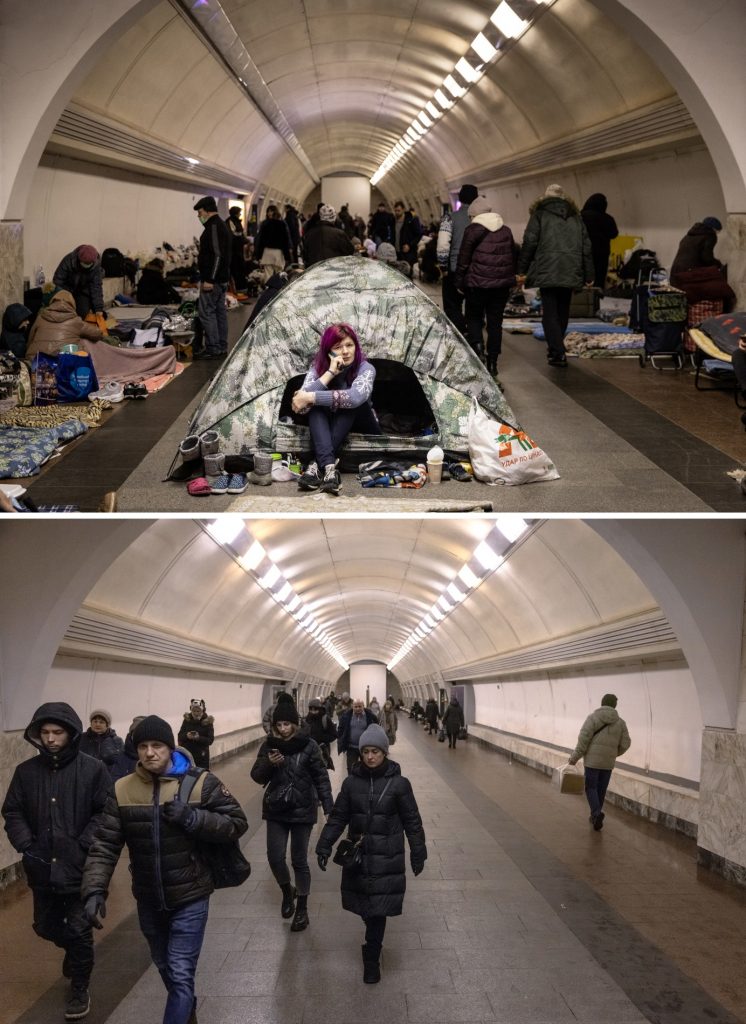
Below: commuters use the station as normal in February 2023, almost a year since Russia’s large-scale invasion of Ukraine. Photos: Chris McGrath; Roman Pilipey/Getty
Russia is stepping up its bombing campaigns, indiscriminately targeting civilians and putting the Zaporizhzhia nuclear plant in extreme danger. It is unlikely to take more land, but it is dug in to resist. The most likely scenario is that Ukraine will make further inroads, taking back a reasonable proportion of invaded territory but not all of it. What then?
If Russian forces did disintegrate and Ukraine was restored to its former borders, Zelensky would achieve the peace terms he seeks; Ukraine would embark on an extraordinary reconstruction and integration into western structures. The Putin regime would collapse instantaneously. Forget an orderly succession. Nuclear-armed Russia would, if only briefly, descend into a vortex of political and possible civil strife. That is what they call in western chancelleries the danger, as well as the opportunity, of outright victory. All of this is not impossible but is highly unlikely.
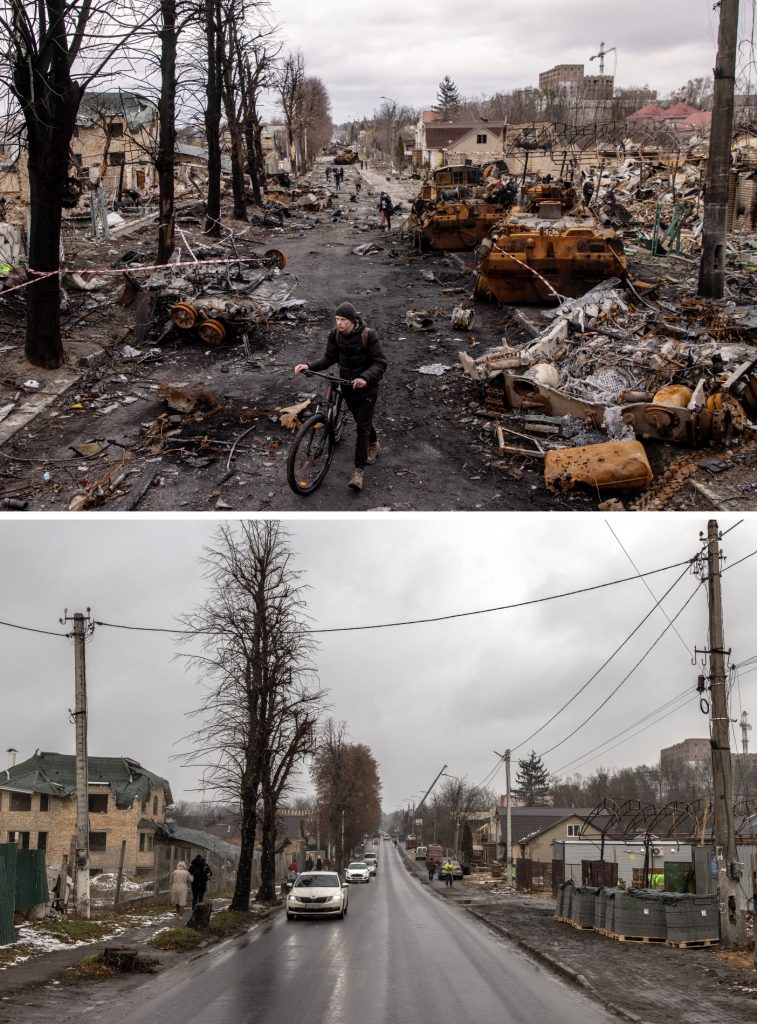
Below: cars on the same street, February, 2023. Ukrainian forces recaptured Bucha from the Russians in late March 2022, revealing mass graves and evidence of execution-style killings. Photos: Chris McGrath; Roman Pilipey/Getty
If the more probable messy but incomplete Ukrainian advance transpires, how would Zelensky respond to the pressure? He would demand more money and weaponry from the west for one more heave. He would get some but not enough. Hence the notion of the truce, the cold peace.
Except it wouldn’t be peace. Just as happened in 2014 after Russian proxies advanced into Donbas and Lugansk. Intense street fighting took place day after day. The difference between then and now is that the world paid little attention.
For Putin, for the moment, this is as good as it is likely to get in Ukraine; but it might be enough for him to survive and to claim a spurious justification for his misadventure. He can wait for more missiles and more human cannon fodder. He can wait for a more propitious world – for Trump, for Xi, for a disunited Europe – to strike again at a later point. That is why the summer of 2023 matters so much for Zelensky.


